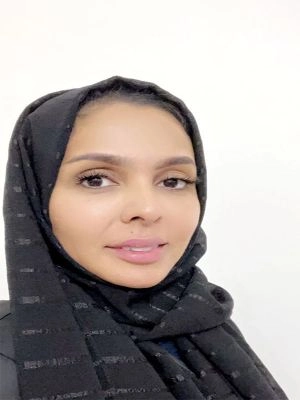“If you build it, they will come.”
This is an often-quoted business mantra that rings true in many walks of life.
The education system is no different and we have started to put solid foundations in place through our Vision 2030 program.A major challenge is knowing the best way to build it so Saudi youngsters are best prepared to make an impression in a competitive and fast-changing world.Many questions arise, ranging from what to teach our students, to how and where, with online learning increasingly prevalent.One thing is clear - the days of the textbook-led lessons where pupils simply listened to instruction are gone.Syllabuses, like teachers and lesson plans must now be agile and able to adjust.There are encouraging signs - as outlined by Crown Prince Mohammed bin Salman when marking the fifth anniversary of the Vision 2030 program last year.Positive statistics show more youngsters are coming into education - numbers on business management courses at public universities rose by 61 percent, for example.The Crown Prince also said we now have five universities in the top 500 worldwide, with the objective firstly, three in the top 200, and in the future perhaps one in the top 10.Just as our teaching methods must continuously adapt, so must our ambitions; and we must continuously strive higher and create bigger targets.But headline figures about numbers of people studying and how we compare globally are not everything.We must also keep in mind how the different goals of Vision 2030 link together as we strive to make our youngsters the best versions of themselves.One of the key aims is to increase the number of Saudi nationals in the labor force, and we must prepare them properly.This is why new powers handed to universities last month, giving them flexibility in the types and numbers of courses they offer is an important development.For the 2022/23 academic year, they will be able to introduce new assessment criteria aimed at improving competitiveness and preparing graduates for work.Being able to decide on specializations and offer diploma courses if students do not qualify for degrees are other important steps.It shows our education system is increasingly being shaped around the individual’s needs rather than making our youngsters fit into a predetermined system.This is important as we need to fully recognize how everyone is different to allow them to thrive.The Vision 2030 Human Capability Development Program, which aims to ensure citizens are able to compete globally, will also help towards this. It will provide chances for lifelong learning, support innovation and entrepreneurship culture, and help youngsters to “seize opportunities”.We are moving with the times and global conditions - some we can predict, others that take us by surprise and force us to react.With this in mind, we can be proud of our efforts during the coronavirus pandemic.During this time, we launched a number of digital platforms, including the virtual kindergarten and ‘Madrasati’.The response showed we can adapt to challenges that arise in an ever-changing world.Vision 2030 means we are building an education system that can give us an exciting future.But we must realize it’s not about catching up with anyone or keeping up with the pace.We must find what works for our youngsters, chart our own course and do things the Saudi way.— Dr. Ghadeer Talal Melibari, holder of PhD in English from University of Hertfordshire, UK, is currently working as Assistant Professor of English teaching at Umm Al-Qura University, Makkah
